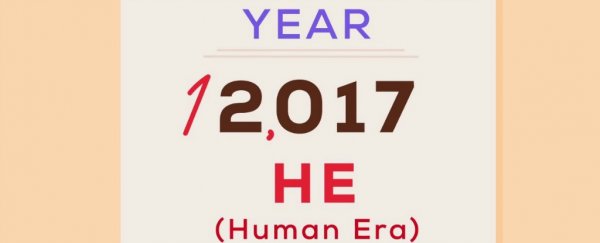In a couple of weeks, we will officially enter 2017, but have you ever given much thought to what that year means, and how the way we keep dates might alter our perception of human advancement and history?
For example, calling next year 2017 gives the impression that human history started only that long ago when, in fact, humans have been around far longer, making advancements that provided the foundation for the technologies we have today.
So, should we follow a different calendar then? Maybe, according to the latest video by Kurzgesagt.
The video looks into a proposal made by several scientists that we should start a new calendar. One that goes beyond religion or culture to show the full breath of our achievement as a collective species, starting, appropriately, at year zero.
But what marks year zero? The video argues that an appropriate place to start the new calendar is when we humans started changing the world around us. For that, we would need to jump back 12,000 years with the creation of the 'first temple'.
This first temple is regarded as humanity's first large-scale construction project, built in modern-day Turkey using relatively simple stone tools. Even so, the culture that built the temple managed to create a structure that spans roughly 300 metres (984 feet) wide with pillars weighing upwards of 40 tonnes.
This is the earliest structure of that magnitude ever found, so many people think it's a great place to start the story of human history because, since then, our ability to terraform the Earth has only gotten more complex.
Noticing this, in 1993 a scientist named Cesare Emiliani proposed that it should be the start date to humanity's calendar, which is quite handy because it just requires us to add a 1 to our current date, making next year 12017 instead of just 2017.
This calendar is known as the Holocene Calendar and is abbreviated 'HE', which stands for Human Era. With this new calendar, religious holidays would stay the same, the days of the week would be the same, and the months wouldn't change, either.
Instead, our perception of history would. We would no longer view the antiquity of other eras the same way because the timeline we are using to describe them is more encompassing, accurately showing how humanity transformed over 12,000 years instead of a mere 2,000.
Check out the video above to see how the new calendar would look and if it changes the way you think of the past.
